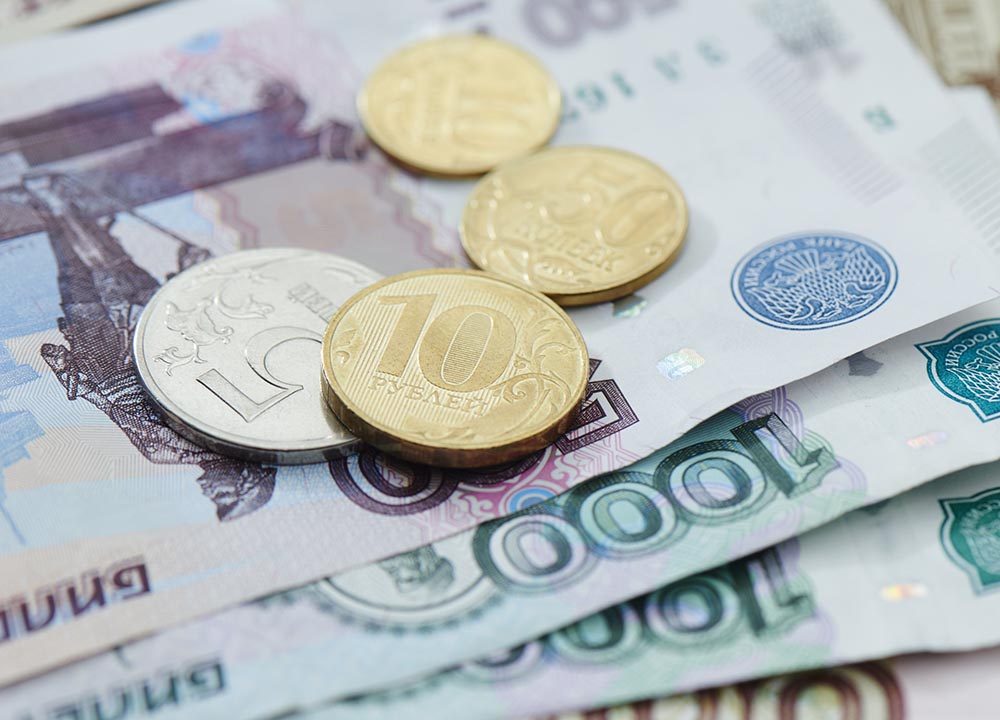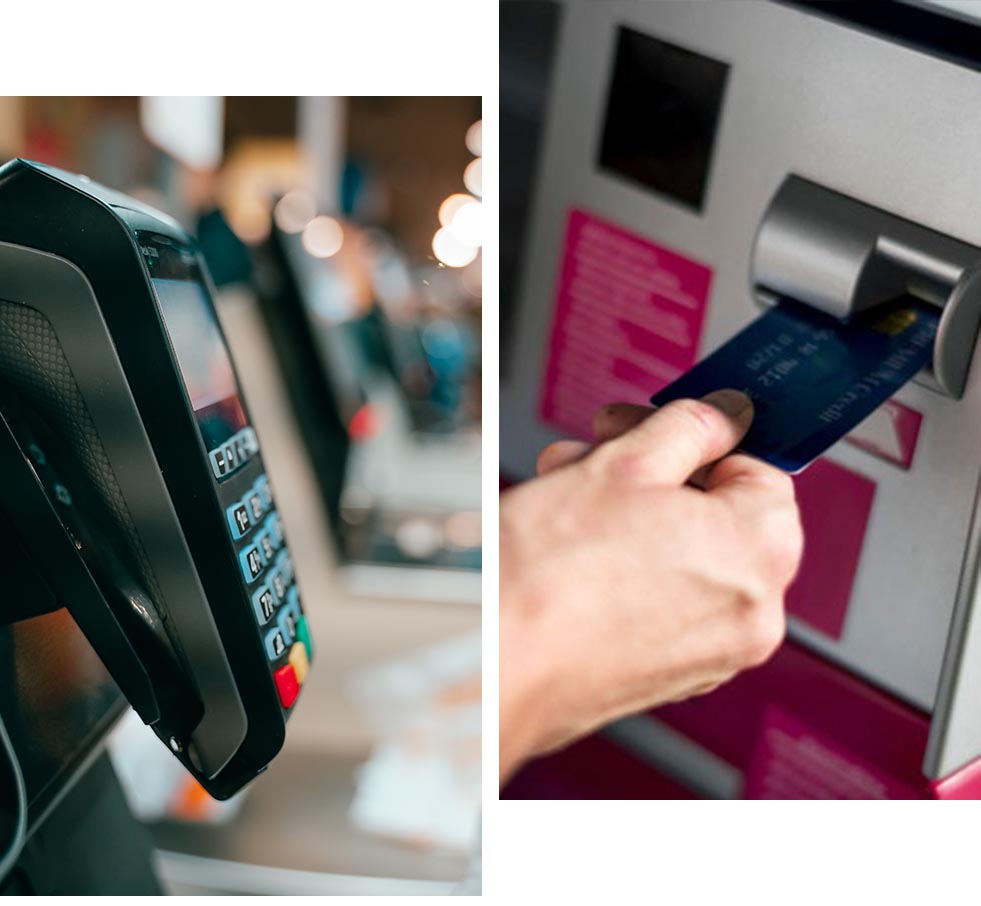
The base Russian currency is the Ruble (Rus: Рубль [Rubl], symbol: ₽), and it is printed on bills in six denominations of 10, 50, 100, 500, 1000, and 5000.
One ruble is divided into 100 kopecks (Rus: копейка [kopeyka]).
Today, circulating coins exist in denominations of 10 kopecks, 50 kopecks, 1 rub, 2 rub, 5 rub, and 10 rub.
It is illegal to charge for goods or services in any currency other than the rouble.
Currency exchange booths are numerous and easy to locate at most street corners. Just look for the sign “ОБМЕН ВАЛЮТ” (obmyen valyut). Airports and large hotels usually offer their own exchange facilities.
Most major currencies are normally convertible at larger banks in big cities. Outside major cities, money changers buy only U.S. Dollars or Euros. Good quality bills are more likely to be accepted than damaged or torn ones. You may be asked for your passport to change money.
State-controlled Sberbank and VTB Bank are the most reliable banks in Russia. They have the most widespread branch and ATM networks.
For more information on Russian banks, visit the websites of the major banks:
Credit cards are widely accepted in large shops, restaurants (including fast-food outlets), bars and nightclubs. But museums and train stations as well as smaller shops and street kiosks most commonly take cash. Keep cash at hand when travelling to the smaller towns and villages.
Visa and Mastercard are welcome almost everywhere in Russia, while American Express and Diner’s Club can rarely be used.
ATM machines are widely available and can be found in airports, in the lobbies of mosthotels, in shopping centers/malls, in metro stations and next to banks. Remember, ATM’s may not be available in small villages and rural area.
Cash is preferred. To avoid additional exchange rate charges, travelers are advised to take traveller’s cheques in US Dollars.
There is no limit to the amount of Russian rubles, foreign currency, travelers cheques allowed to be brought into/from Russia.
Imported/exported Russian rubles, foreign currency, travelers cheques are not subject to customs declaring, and can be moved through the “Green” Channel (Green Corridor) if their total amount does not exceed the equivalent of U.S. $10,000.
Imported/exported monetary instruments, except for travelers checks, are subject to customs declaring, regardless of the amount.

Tipping in bars and restaurants is normally 10%. Tipping taxi drivers and petrol attendants is not a common practice, however, If you would like to give a tip, the recommended percentage is about 10%.
Bargaining is not a Russian habit but it is worth asking about special deals and any discounts that may apply.
Check out the full list of the most interesting tours in Russian cities.